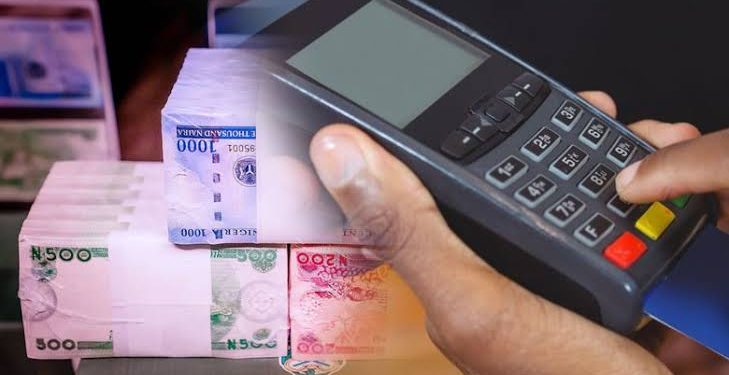The cost of Point-of-Sale (PoS) terminals in Nigeria has surged sharply between 2023 and 2025, rising by as much as 100% for advanced devices and at least 30% for entry-level models. The price hike, driven by soaring inflation, foreign exchange volatility, and higher logistics costs, is reshaping the dynamics of Nigeria’s booming agency banking sector and raising barriers for small business owners looking to enter the space.
Entry-level PoS machines that once sold for between N15,000 and N20,000 now cost about N21,500, while more sophisticated Android and smart terminals that previously ranged from N30,000 to N40,000 now cost between N62,000 and N85,000. Despite the rising costs, demand for PoS services continues to grow, especially in underserved and rural communities where these devices are the primary access point to financial services. According to data from the Nigeria Inter-Bank Settlement Systems (NIBSS), the number of registered PoS terminals in the country climbed to 8.3 million as of March 2025.
The sector is largely driven by fintech companies, which dominate the PoS market as they aggressively onboard new agents. However, rising costs are forcing many of them to rethink their business models. A senior official at one of the leading fintech firms explained that the surge is largely due to currency depreciation and increased importation costs, as all PoS terminals used in Nigeria are imported.
“The dollar rate is a major factor in all these. Currently, there is no locally produced PoS; all are imported, and the price has to reflect the exchange rates. Even the prices you see today are not the true reflection of the associated costs because some of us are more concerned about financial inclusion, and we have to do everything possible, including bearing some costs to ensure that PoS terminals remain affordable,” the official said.
Industry players say the rising cost is forcing a shift from previous pricing models. Dealers now require outright payments or higher caution fees from merchants, compared to the past when Android PoS devices could be obtained with a deposit as low as N20,000. Some fintechs are also adopting leasing models, retaining ownership of the devices while requiring agents to meet higher transaction volumes.
For many young Nigerians and small business owners, the sharp rise in device costs is making it harder to enter one of the country’s fastest-growing small business sectors. Existing operators with multiple outlets are also feeling the pinch, as expansion plans become more expensive and less viable.
The cost surge reflects broader macroeconomic challenges. Nigeria’s inflation soared from 21.34% in December 2022 to a record high of 34.60% in November 2024, before moderating to 20.12% by August 2025. Meanwhile, the naira’s value plunged from around N500 per dollar in early 2023 to about N1,500 per dollar in 2025. With all PoS terminals imported, fintech firms have little control over pricing, and the lack of local hardware manufacturing leaves the industry vulnerable to foreign exchange fluctuations and global supply chain disruptions.
For small entrepreneurs, these rising costs mean higher barriers to entry into the PoS business. Although fintech companies such as OPay, PalmPay, Moniepoint, and Nomba continue to offer flexible acquisition models from refundable caution deposits to outright purchase options , the business is no longer as affordable as it was two years ago.
Still, analysts believe demand for PoS services will remain resilient due to Nigeria’s push toward a cash-light economy. For millions in underserved regions, PoS terminals remain the closest link to formal financial services, underscoring their continued importance to financial inclusion even amid rising costs.










